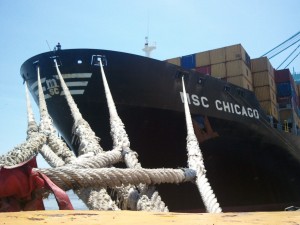Trade Facilitation Agreement Is Back On Track

Because of an impasse created by India over food security this past July, which prevented ratification of the Trade Facilitation Agreement (TFA) reached in Bali in December 2013, some questioned the continued viability of the World Trade Organization. On Nov. 27, 2014, the WTO was finally able to overcome the deadlock and adopted the protocol of amendment which opened TFA for ratification and implementation.
The WTO General Council was able to address India’s objections after a breakthrough made by the U.S. and India on Nov. 13, 2014, to simultaneously adopt the protocol necessary to implement the TFA and a decision clarifying the terms of an existing food security “peace clause.” As stated by Director-General Roberto Azevedo, this was “a very important moment for the WTO” putting “negotiations back on track” and creating a “renewed commitment to the multilateral trading system.”
The protocol of amendment formally inserts the TFA into the WTO rulebook, according to Director-General Azevedo. This clears the way for the TFA to come into force. However, it also removes the July 31, 2015, deadline for WTO members to ratify the TFA leaving open the ratification process open indefinitely. The agreement enters into force once two-thirds of WTO members have completed their domestic ratification process.
So what does this first WTO multilateral agreement mean to the global economy, the developing world and international business? U.S. Trade Representative Ambassador Michael Froman says that “[t]he Trade Facilitation Agreement has the potential to fundamentally reform global customs practices and substantially reduce the costs and time associated with goods crossing borders. It’s a perfect example of how breaking down barriers to trade can unlock new opportunities for developed and developing countries alike, and it’s a particularly important win for small- and medium-sized businesses in all countries.” It is no wonder why TFA implementation is strongly supported by groups like the International Chamber of Commerce.
What does the TFA do? The agreement simplifies and harmonizes customs procedures and mandates customs reforms such as introducing transparency, risk based management by customs administrations, a “single window” for all government agencies dealing with imported merchandise, automation, electronic payment of duties and the separation of the payment of duties from the release of cargo, among other things. These improvements are intended to facilitate trade across borders, thereby reducing the costs for international traders and ultimately consumers.
The agreement also offers donor assistance and capacity building to developing and least developing countries so that they can enjoy the well-documented benefits of implementation. The improved trading environment should attract more trade and investment to countries that implement good governance in the form the improved customs procedures. The improvements, which have the effect of increasing transparency and reducing discretion of customs officials, should also address corruption at the border at least to some extent.
So what impact will the customs modernization reforms contained in the TFA have? What does this mean to business engaged in global trade and foreign direct investment? It should introduce an element of predictability in the form of rule of law and good governance for business embarking on what heretofore were riskier trading endeavors. It should take some of the risk out of doing business in emerging markets, where it is said that some of the greatest business opportunities lie. Perhaps even small- and medium-sized businesses will venture out into these markets stimulating the global economy and presenting a win-win for the developed and developing worlds as predicted by Ambassador Froman.
There is much work to be done. The argument must be made that ratification is in each country’s best interest. Countries must be proactive to avail themselves of the assistance offered by donor organizations like the World Bank, World Customs Organization and the WTO, whose Trade Facilitation Agreement Facility is now operational with the finalization of the agreement. Each country must prioritize its most important customs reforms and donor organizations must coordinate efforts to avoid wasting valuable resources. Business can also make their priorities known to the governments and donor organizations on areas of importance to business and what needs to be addressed first in particular countries. As Director-General Azevedo states, now the “real work begins.”
